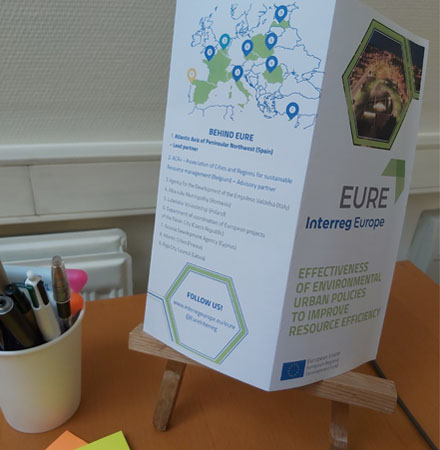Stéphane Péan is part of the pool of expert that is supporting the EURE's partners in the development of an analysis of the urban processes involved in the improvement of resource efficiency at regional level.
He gave us his point of view on the role of cities in boosting a sustainable development. This is the first episode on Urban sustainable Development.
2030 Agenda for Sustainable Development
In 2015, the United Nations adopted the 2030 Agenda for sustainable development. Based on 5 pillars – planet, people, prosperity, peace and partnership –, it universally sets out a shared normative framework comprising 17 Sustainable development goals (SDGs) along with 169 targets . The SDG 11 related to “sustainable cities and communities” aims to make cities and human settlements inclusive, safe, resilient and sustainable.
According to OECD, territories have a crucial role to play in SDG achievements. Indeed, about one-third of SDGs have a local or urban component and two-third of their overall targets will not be reached without engaging cities and regions. Therefore, the OECD claims that a territorial approach is required to monitor progress, engage multi-level governance and share best practices.
In 2016, the Pact of Amsterdam established the Urban agenda for EU (UAEU), which recognises the crucial role of cities in achieving the SDGs. In Europe, the forthcoming “2030 Territorial Agenda: a future for all places” should be the appropriate policy framework to contribute to the 2030 Agenda for Sustainable Development.
SDGs indicators for European cities
The SDGs’ targets are monitored each by about 1 or 3 more precise indicators. Reviewed in 2020, the UN’s Global indicator framework gathers 231 unique indicators.
Early 2020, the EU Joint Research Centre (JRC) published the Handbook for SDG Voluntary local reviews (VLR), with the purpose to provide comprehensive guidelines. It includes 71 indicators to set up an effective SDG local monitoring system for European cities. Up to date, only 8 front-runners – cities and regions – have already published their VLR.
Undeniably, smart cities are expected to play a key role to reach SDGs’ targets, with a shift to smart sustainable cities paradigm. With ICTs deployment, the volume of big data has been exponentially increasing (+40%/year), particularly in urban areas.















